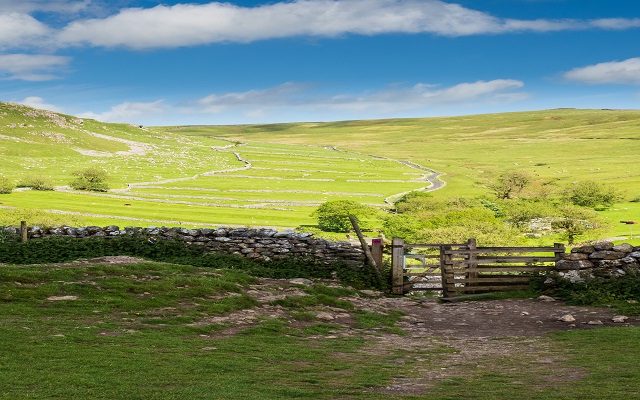Land Business Update | Week commencing 1st July
Welcome to our update on key land management, farming, planning and energy issues.
Farming
Future farming support funding gap
Farmers in England currently receive £2.2bn of direct support a year; 80% is Basic Payment Scheme support (Basic Payments) and 20% is funding through the Rural Development Programme for England (RDPE), which is mainly spent on the Countryside Stewardship and other agri-environment schemes. Both of these payment streams – Basic Payments and the RDPE – will change significantly after Brexit. A key question for farm businesses is will there be a ‘funding gap’ – lower support – during and after the transition to the new policies. While we do not have answers to every questions, including how Defra proposes the transition will work in detail, we can make a number of assumptions to assess whether there may be a funding gap and its possible size. Download our paper which discusses the effect on support, both across England and on individual farms.
Defra to pay all unpaid annual revenue claims for Stewardship by the end of July
Defra has announced that all land managers in Environmental Stewardship (ES) and Countryside Stewardship (CS) agreements will receive a full payment for all work they have done by the end of July. The payments will cover approved ‘unpaid annual revenue claims’ and includes some claims dating back to 2015. The payments are being funded by the UK Government, which will then reclaim some / all of it from the Common Agricultural Policy, which is the usually source of the payments. Our understanding is that any payments that are still in dispute will not be paid so we recommend that these are escalated to ensure they are dealt with as soon as possible.
Only 10% of Scottish farmers confident about their future, according to NFU Scotland poll
Almost half of the 690 farmers who responded to the poll said that their businesses had already been affected by Brexit – the main impacts being higher input costs (54%) and delays to investments (51%). Looking forwards, 75% said that they had not done any business planning for Brexit and 65% think that any Brexit deal (so ignoring a no deal Brexit) would have a negative or very negative impact on their business. Please contact Mary Munro, our head of farming in Scotland, to discuss business planning pre- and post-Brexit.
Mercosur agreement raises fundamental questions on trade and the environment
The EU’s latest offer to the Mercosur trade group is access for up to 99,000 tonnes of hormone-free beef. It will also offer access for poultry, sugar, ethanol, rice, egg products, garlic, pork and sheepmeat, on the condition that Mercosur grants access for European dairy products, wines and products with protected geographic indications. The deal is fascinating as it requires decisions to be made by the EU on the balance between protecting EU farmers and wider trade; also between trade and protecting the environment. Over 340 environmental and other organisations have written to the European Commission to say that the deal should only be agreed if Mercosur confirms that the countries will fulfil their Paris Climate Agreement commitments. Another key consideration is whether food should be imported that is produced using pesticides banned in the EU? The deal is expected to be agreed by the end of July. NB The almost agreed EU – Vietnam trade deal includes a commitment to effective implementation of the Paris climate agreement.
Energy
£10m available through Rural Community Energy Fund (round 2) for feasibility studies, business plans and planning applications
The Fund, which is funded by Defra and the Department for Business, Energy & Industrial Strategy (BEIS), provides grants for rural communities in England to develop renewable energy projects which provide economic and social benefits to the community. It
provides grants of up to £40,000 for feasibility studies for green initiatives, including solar battery storage, wind, hydro and geothermal heat projects. Viable proposals will also be considered for further grants of up to £100,000 for business development and planning applications. More than 150 communities have already used the Fund. Some of the projects generate income for local communities by selling energy back into the grid. For example, a project in Frome, which includes Frome Town Football Club, installed over 200 kW of solar capacity, enough to power 2,000 light bulbs and save 333 tons of CO2. It generates almost £70,000 for the local community by selling excess solar electricity back to the grid.
Environment
Net zero law passes Commons without any objections
The UK has passed one of the most ambitious climate change targets in the world, amending the Climate Change Act 2008, to raise the UK’s carbon reduction target from 80 per cent to net zero emissions by 2050. The Government says the UK has already reduced emissions by 42% while growing the economy by 72%, since 1990.
Bet you did not know this about hoverflies…
Hundreds of millions of hoverflies cross the Channel each year from continental Europe, according to a new study led by Exeter University that tracked the little wonders by radar. The hoverflies fly up to a high altitude to take advantage of prevailing winds to help them fly to the UK in the spring – and they can cover hundreds of miles a day. Their offspring then return to the continent in the autumn. The two most common species of hoverfly carry about the same amount of pollen as all the honey bees in the UK. Also, and perhaps even more importantly, their larvae eat about 20% of the aphids in an average wheat field – around six trillion aphids.
Forestry
Genetic considerations for provenance choice of native trees under climate change in England
The Forestry Commission’s excellent advice note (two pages long), while acknowledging that the evidence-base is incomplete, comes to some useful, practical findings. It says that a “portfolio approach” to restocking (for example, using natural regeneration, local planting stock, and planting stock from appropriate, more southerly provenances), using species matched to site characteristics and managers’ objectives, could help to spread the risks compared with choosing stock from one provenance and increase the likelihood that some trees will thrive. Research also found that the effect of the ‘site’ is often larger than the effect of ‘provenance’, which means that any unsuitable trees brought in through planting will usually fail before they reach reproductive age. Limiting the amount of any non-local provenance stock to only a small proportion addresses this risk.
Planning
Planning and the broken housing market – report from the Public Accounts Committee
The Committee’s damning report makes a series of recommendations to improve the housing market, including that the Government should publish a single document that sets out all of the actions it is taking to achieve the target of 300,000 new homes by the end of October; this should include year-on-year projections, and details of the types, tenures and amounts of affordable housing. The Committee also asks the Government to say ‘what additional interventions it will make when local authorities fail to produce local plans’, which should include a range of ‘carrot and stick’ measures. Let’s see what happens now!






